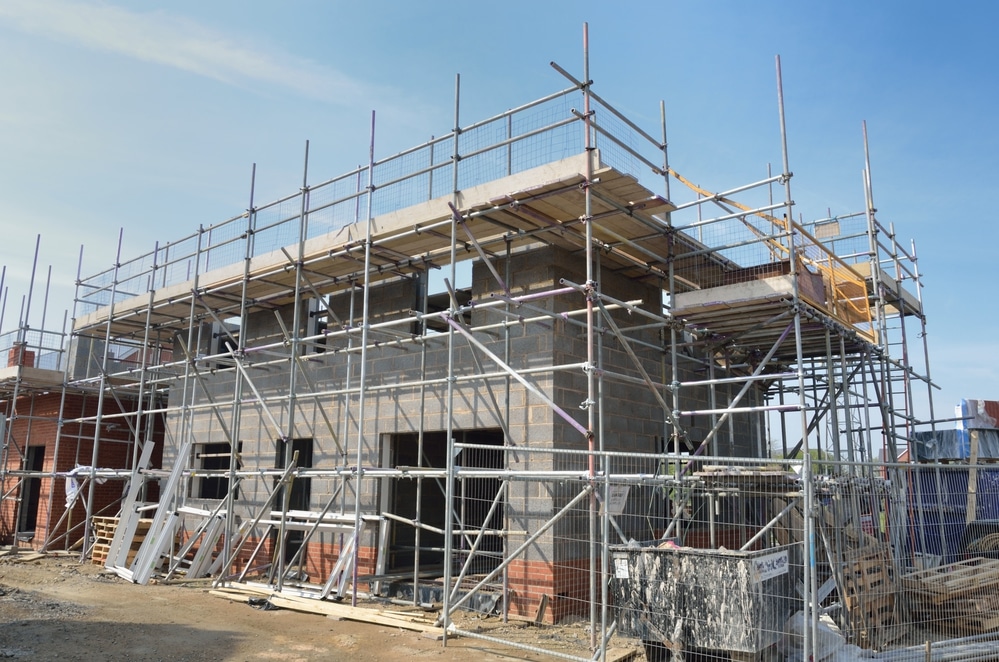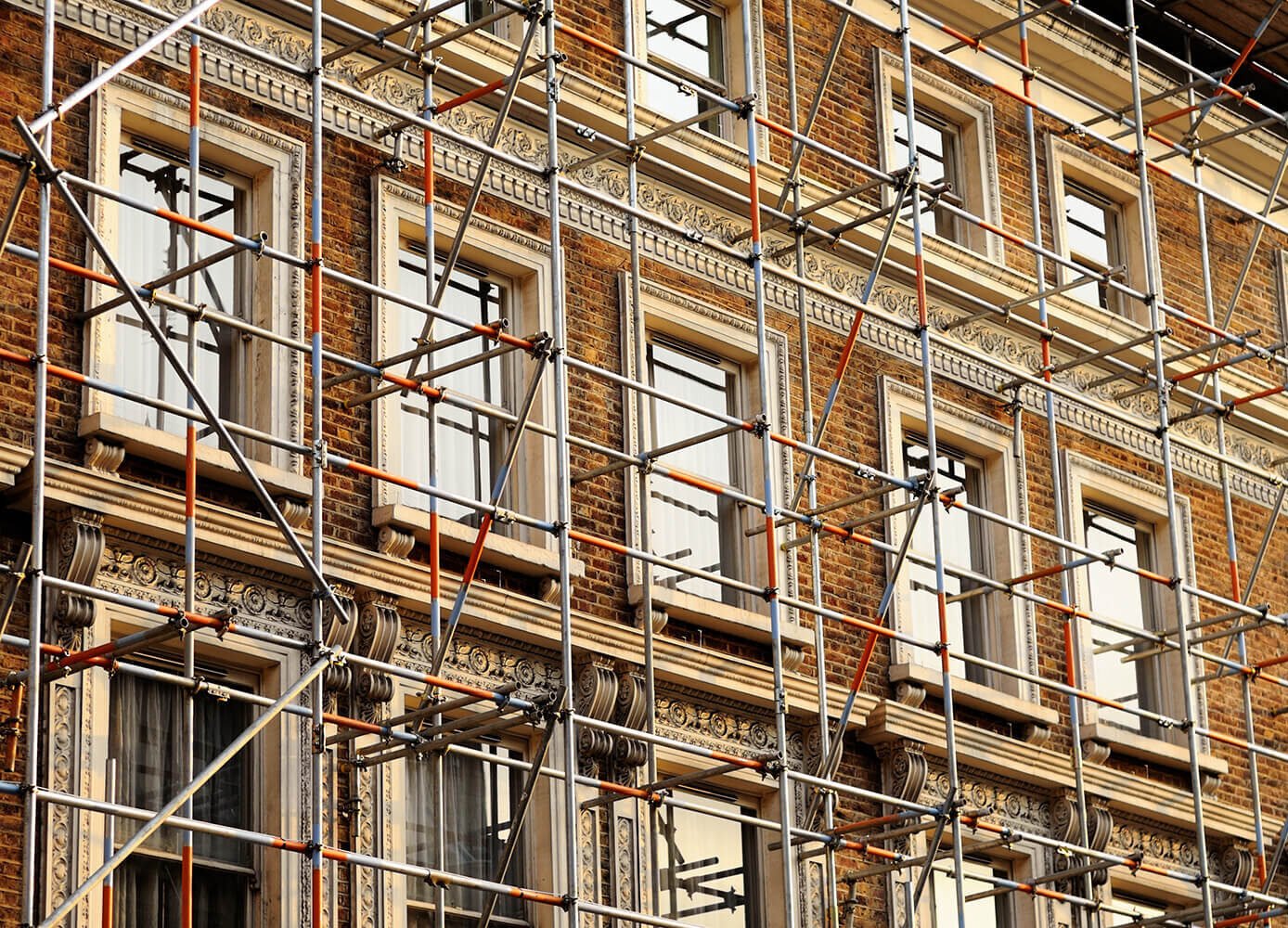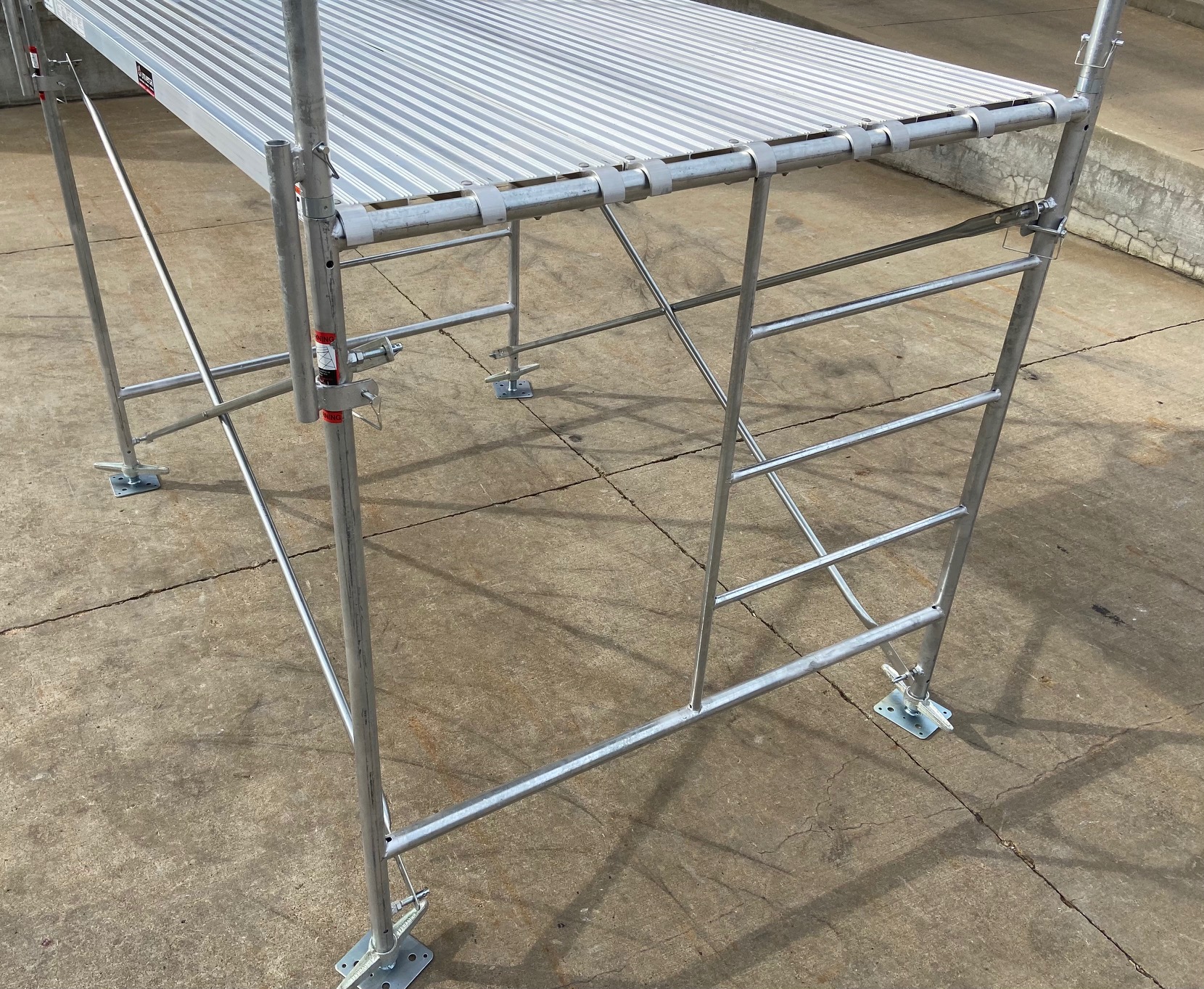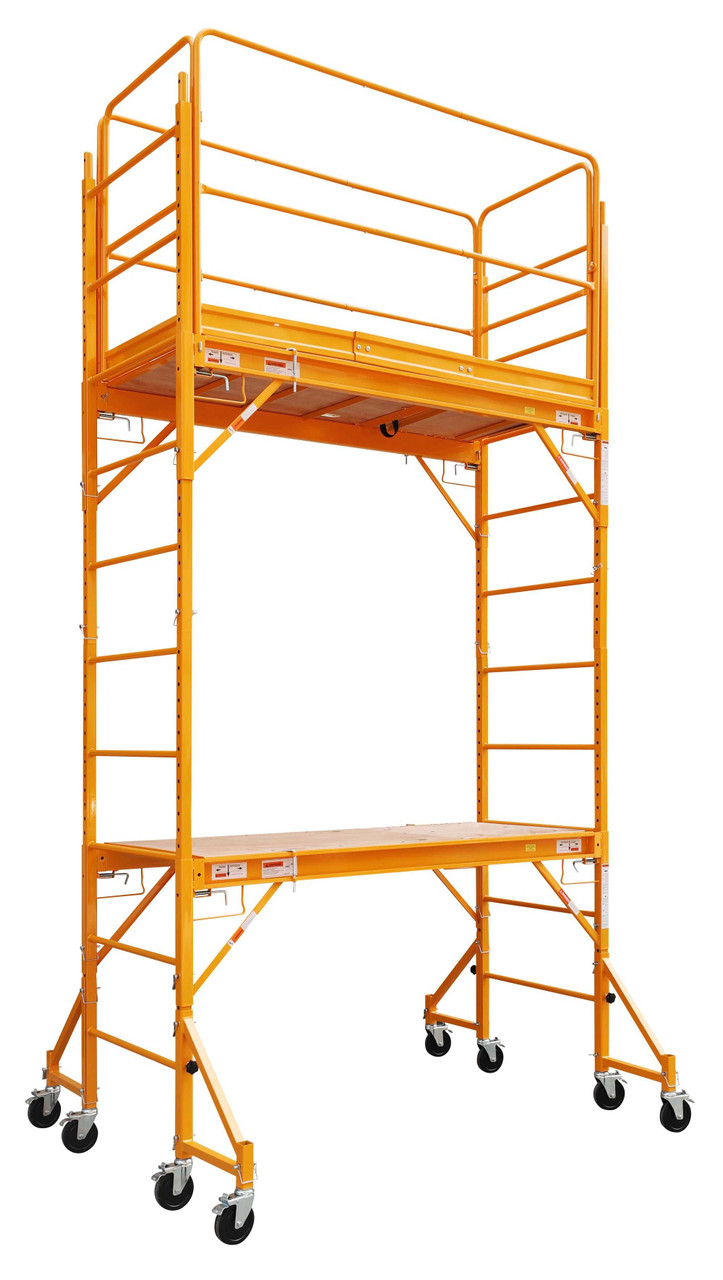Temporary Roof Scaffolding Experts Providing Secure and Reliable Installations
Temporary Roof Scaffolding Experts Providing Secure and Reliable Installations
Blog Article
Checking Out the Various Sorts Of Scaffolding Utilized in Construction Projects
The building and construction industry counts heavily on numerous types of scaffolding to fulfill particular task demands, each offering distinctive advantages and applications. Traditional framework scaffolding gives a durable foundation for basic tasks, while suspended scaffolding is vital for job on high-rise structures.

Standard Structure Scaffolding
Typical structure scaffolding is just one of the most commonly made use of approaches in the construction industry due to its robustness and convenience. This system includes horizontal and upright frameworks that are constructed to develop a secure system for employees and materials. The primary elements consist of upright messages, horizontal ledgers, and angled dental braces, which together provide a strong framework that can support significant tons.
Among the key advantages of standard frame scaffolding is its versatility to various construction tasks, ranging from household buildings to big industrial frameworks. The modular design permits very easy assembly and disassembly, making it effective for both temporary and long-lasting tasks. Additionally, the system can be tailored in height and size, accommodating various building layouts and site conditions.
Safety and security is vital in scaffolding applications, and conventional structure systems are outfitted with guardrails and toe boards to stop drops and make certain worker security. Routine examinations and adherence to safety guidelines are essential in preserving the honesty of the scaffold (Scaffolding). Generally, conventional structure scaffolding continues to be a basic option in the building and construction market, supplying a dependable platform for labor and boosting total project effectiveness

Suspended Scaffolding
Put on hold scaffolding uses a special remedy for building and construction tasks that need access to elevated surfaces, especially in situations where typical structure scaffolding might be impractical. This kind of scaffolding is generally put on hold from the roof or top degrees of a framework, using a system of pulley-blocks, ropes, and platforms to produce a working room that can be gotten used to various elevations.
Among the main benefits of suspended scaffolding is its adaptability. It can be conveniently rearranged or lowered to fit changes in building and construction demands, making it suitable for tasks such as home window installment, façade work, and upkeep on high-rise buildings. Additionally, the marginal impact of suspended scaffolding enables much better usage of ground space in urban settings, where space is usually restricted.
Safety is a critical consideration in using put on hold scaffolding. Proper rigging and securing systems have to be employed to make sure stability and protect against accidents. Operators should likewise be learnt the secure use this equipment. Generally, suspended scaffolding supplies a effective and efficient option for accessing hard-to-reach locations in numerous construction scenarios, boosting both performance and safety and security on site.
System Scaffolding
System scaffolding, typically considered a contemporary solution in the scaffolding sector, is composed of pre-engineered elements that can be promptly put together and adjusted for numerous building and construction tasks. Scaffolding. This type of scaffolding is characterized by its modular design, which permits for convenience and performance on task sites, fitting architectural demands and different heights
Usually made from high-strength steel or light weight aluminum, system scaffolding supplies improved sturdiness and security. The parts consist of upright articles, horizontal journals, and angled braces, which adjoin safely, guaranteeing a robust structure. The style frequently incorporates standard fittings, streamlining assembly and disassembly procedures, thereby minimizing labor time and costs.

Rolling Scaffolding
Moving scaffolding is a flexible option to standard set scaffolding, created for movement and convenience of use on construction websites. This kind of scaffolding contains a system sustained by frames with wheels, permitting employees to conveniently move it as required. The wheelchair function considerably improves performance, as it decreases downtime linked with disassembling and assembling dealt with scaffolding.
Typically created from lightweight materials such as light weight aluminum or steel, rolling scaffolding uses a durable yet portable service for projects calling for regular repositioning - Scaffolding. It is particularly beneficial in jobs such as painting, drywall installment, and electrical job, where accessibility to various elevations and places is needed
Safety and security is extremely important in rolling scaffolding style, with features such as securing wheels to stop unintentional motion when in operation, and guardrails to shield employees from falls. In addition, lots of models are adjustable in elevation, accommodating various task demands.
Cantilever Scaffolding

The style of cantilever scaffolding commonly entails utilizing arms or braces anchored to a building or framework, website link making it possible for the system to prolong external safely. Safety and security is vital; therefore, these scaffolds should be crafted to hold up against various tons and environmental problems. Regular evaluation and maintenance internet are vital to make certain architectural honesty and worker safety.
Cantilever scaffolding is preferred for its convenience and efficient use of room, making it a prominent choice in city atmospheres where area constraints are usual. Additionally, it facilitates simpler accessibility to high altitudes, ultimately adding to the total performance of building tasks. Just like all scaffolding types, appropriate training and adherence to safety and security criteria are vital for workers using cantilever scaffolding.
Verdict
Conventional framework scaffolding supplies security, while put on hold scaffolding supplies versatility for elevated jobs. System scaffolding promotes fast setting up, and rolling scaffolding improves mobility for varying job settings.
Typical structure scaffolding offers a durable foundation for general tasks, while suspended scaffolding is important for job on high-rise frameworks.Rolling scaffolding is a flexible choice to typical set scaffolding, made for mobility and ease of use on construction sites. As with all scaffolding kinds, proper training and adherence to security standards are crucial for workers utilizing cantilever scaffolding.
Traditional framework scaffolding offers stability, while put on hold scaffolding uses convenience for raised tasks. System scaffolding helps with quick setting up, and try this site rolling scaffolding boosts mobility for differing work environments.
Report this page